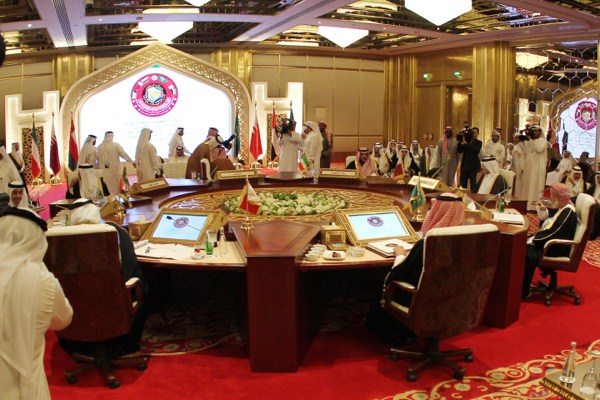In March 2011, Peninsula Shield, the joint emergency military force of the Gulf Cooperation Council (GCC), crossed the causeway from Saudi Arabia into Bahrain to help the ruling al-Khalifa family crush a popular revolt. Two GCC members, Oman and Kuwait, refused to participate in what was effectively a Saudi-led intervention to prop up a fellow monarch. But earlier this week, at the annual GCC summit in Doha, Qatar, the bloc agreed to expand security cooperation—and this time, there were no abstentions.
The Doha summit capped a year of reconciliation among the oil and gas-rich Arab Gulf kingdoms, mainly involving Qatar settling a long-running cold war with its larger neighbor, Saudi Arabia, over support of Egypt’s Muslim Brotherhood and other Islamist movements in the region. The United Arab Emirates has its own disagreements with Qatar, mainly over Libya, where a kind of proxy war plays out between militias supported by Qatar and former loyalists of the late Libyan dictator Moammar Gadhafi backed by the Emirates.
“Qatar came to a face-saving agreement with its GCC neighbors in order to save the annual summit and its rotating leadership of the GCC,” says Kristian Coates Ulrichsen, the fellow for the Middle East at Rice University’s Baker Institute and an associate fellow at Chatham House in London. “It is likely that the compromises made in Riyadh in November,” he adds, referring to a reconciliation meeting in the Saudi capital, “were more about changes in the style of Qatari policymaking rather than the substance, reflecting a pragmatic recalibration of Qatar’s stance without necessarily shifting the fundamental tenets of Doha’s distinctive regional policies.”

